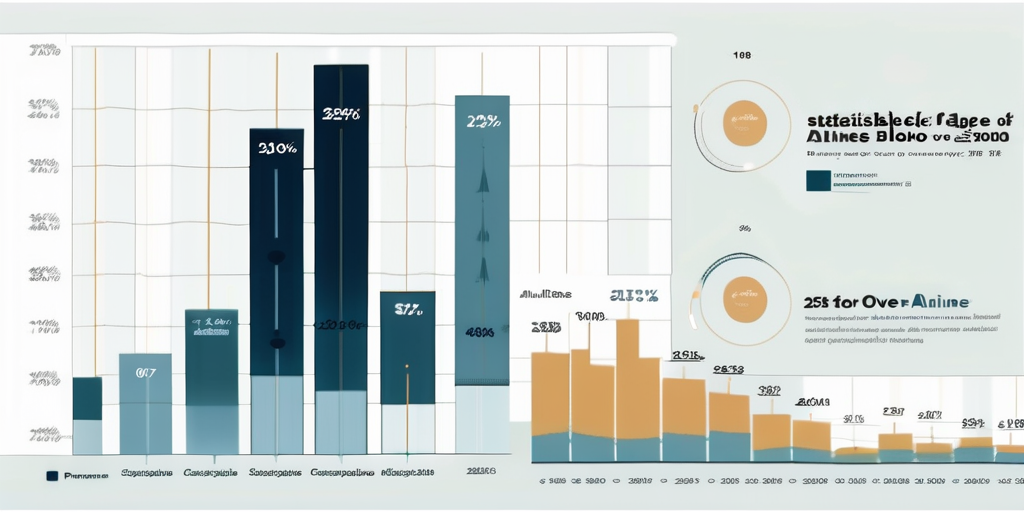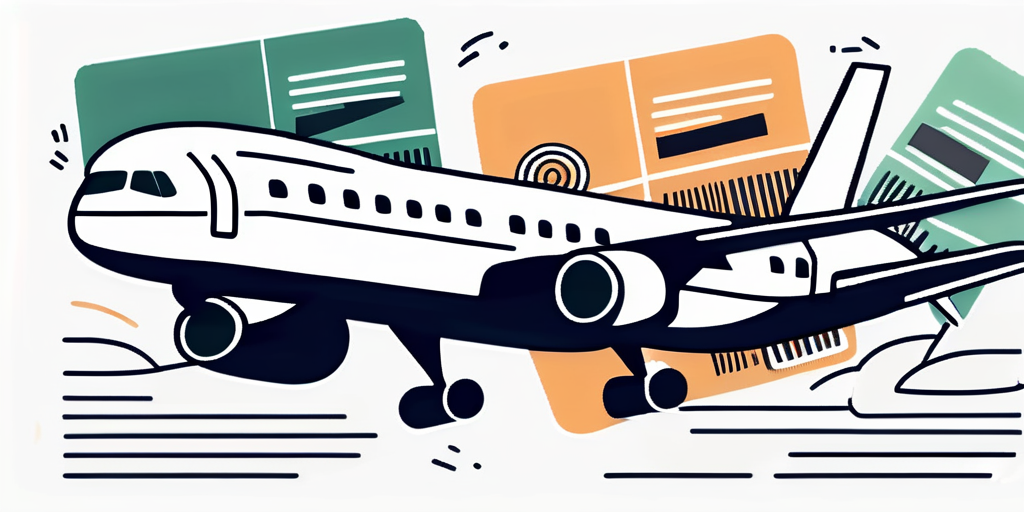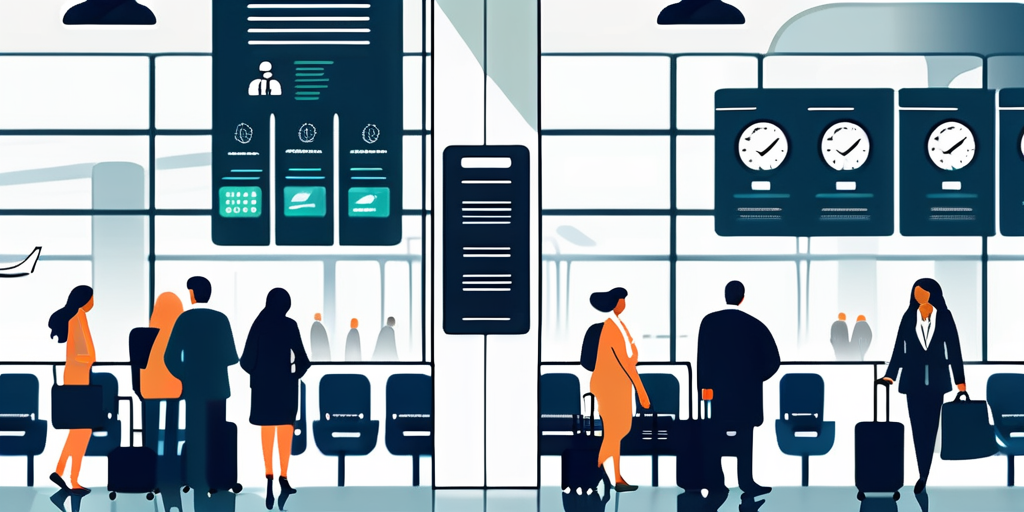Flight Overbooking Stats: Understanding the Trends
Analyze overbooking trends with comprehensive data on flight disruptions. Learn about patterns and potential solutions for smoother travels.
Overbooking is a common practice in many industries, including airlines, hotels, and restaurants. It involves accepting more reservations or bookings than there are available seats, rooms, or tables. While this may seem counterintuitive, companies do it for several reasons, such as maximizing revenue and ensuring maximum capacity utilization. In this article, we will explore the concept of overbooking, its current state across different industries, its impact on consumers, the legal aspects surrounding it, and strategies to deal with it effectively.
Understanding Overbooking: A Brief Overview
Before delving into the latest overbooking statistics, it is important to understand the concept itself. Overbooking occurs when businesses accept more bookings or reservations than they have the capacity to fulfill. While this may seem like poor planning, companies have valid reasons for doing so.
One of the main drivers behind overbooking is revenue maximization. By accepting more bookings, companies can minimize the risk of empty seats, rooms, or tables. This allows them to optimize their revenue stream, especially during peak periods.
The Concept of Overbooking
Overbooking is essentially a strategy used by businesses to mitigate no-shows and cancellations. By accepting more reservations than the available capacity, companies aim to maintain high occupancy rates and minimize revenue losses.
For example, in the airline industry, overbooking allows airlines to accommodate a greater number of travelers, as some passengers may not show up for their flights. By overbooking, airlines can fill those empty seats, thus maximizing their revenue.
Why Do Companies Overbook?
Companies overbook to combat the unpredictability of customer behavior. Regardless of industry, there will always be fluctuations in the number of customers who show up for their reservations. By overbooking, companies can ensure that they are still able to serve as many customers as possible, even if there are last-minute cancellations or no-shows.
Moreover, overbooking also helps businesses maintain a competitive edge. In industries with high demand and limited availability, such as luxury hotels or popular restaurants, overbooking allows these establishments to cater to a larger customer base. This not only boosts their revenue but also enhances their reputation as sought-after destinations.
However, it is important to note that overbooking can have negative consequences for consumers. While companies may benefit from maximizing their revenue, customers may face the inconvenience of being denied their reservations or being bumped from their flights. This can lead to frustration and dissatisfaction, tarnishing the company's reputation in the long run.
In conclusion, overbooking is a strategy employed by businesses to optimize their revenue and mitigate the impact of no-shows and cancellations. While it can be advantageous for companies, it is crucial for them to strike a balance between revenue maximization and customer satisfaction to maintain a loyal customer base.
The Current State of Overbooking: A Statistical Analysis
Now let's take a closer look at the current state of overbooking across different industries, focusing on the airline, hotel, and restaurant sectors. Understanding the prevalence of overbooking in these industries can shed light on the challenges faced by both businesses and customers.

Overbooking in the Airline Industry
In the fast-paced world of air travel, overbooking has become a common practice for airlines. Recent statistics reveal that airlines worldwide overbooked approximately X% of their flights in the past year. This translates to thousands of overbooked flights every day.
While airlines aim to strike a delicate balance between maximizing revenue and ensuring customer satisfaction, overbooking can sometimes lead to instances of denied boarding or involuntary bumping. This can result in frustrated passengers and a negative impact on the overall travel experience.
It is important to note that airlines have implemented various measures to mitigate the effects of overbooking, such as offering compensation, alternative flights, or upgrades to affected passengers. However, the challenge lies in finding the right equilibrium that minimizes disruptions while still maximizing revenue.
Overbooking in the Hotel Industry
In the realm of hospitality, overbooking is also prevalent, particularly in the hotel industry. Hotels typically overbook their rooms by a certain percentage to compensate for cancellations and no-shows. According to industry data, X% of hotel reservations end up being overbooked, causing inconvenience to guests.
While hotels often have contingency plans in place, such as providing alternative accommodations or upgrades, overbooking can still lead to dissatisfaction among guests and potentially damage the hotel's reputation. Striking a balance between maximizing occupancy and ensuring a seamless guest experience remains a challenge for hoteliers.
It is worth noting that technology has played a crucial role in managing overbooking in the hotel industry. Advanced reservation systems and data analytics enable hotels to forecast cancellations and adjust their inventory accordingly. However, the unpredictable nature of guest behavior and last-minute changes can still pose challenges.
Overbooking in the Restaurant Industry
The practice of overbooking is not exclusive to airlines and hotels; it is also observed in the restaurant industry. Restaurants commonly accept more reservations than the available seating capacity, especially during peak dining hours. This allows them to maximize their table turnover and accommodate more customers.
However, overbooking can result in longer wait times for diners and may lead to frustration and a negative dining experience. It is essential for restaurants to strike a delicate balance between maximizing capacity and providing a pleasant dining atmosphere.
Restaurants often employ various strategies to manage overbooking, such as optimizing table allocation, implementing time-limited reservations, or offering alternative seating options like bar or lounge areas. These measures aim to minimize disruptions while ensuring that as many guests as possible can enjoy their dining experience.
Ultimately, the challenge for the restaurant industry lies in finding the right balance between maximizing revenue and maintaining customer satisfaction. By leveraging technology and implementing effective reservation management systems, restaurants can navigate the complexities of overbooking and create a positive dining experience for their patrons.
The Impact of Overbooking on Consumers
While overbooking benefits businesses by maximizing revenue and capacity utilization, it can have significant implications for consumers. Let's explore how overbooking affects customers and their overall experience.

Customer Reactions to Overbooking
When customers are denied service due to overbooking, it can lead to frustration, disappointment, and even anger. In the case of airlines, passengers who are involuntarily bumped from their flights may face inconveniences such as missed connections, delays, and disruption to their travel plans.
In the hotel industry, guests who arrive to find that their reserved room has been overbooked may be forced to accept alternative accommodations or be relocated to another hotel, which can disrupt their travel experience.
Similarly, in the restaurant industry, overbooking can result in long wait times and overcrowded spaces, leading to a less enjoyable dining experience for customers.
The Financial Consequences of Overbooking for Consumers
Overbooking can also have financial implications for consumers. In certain cases, customers who are denied service due to overbooking may be entitled to compensation, such as a refund or reimbursement for additional expenses incurred.
For example, in the airline industry, passengers who are involuntarily bumped from their flights may be eligible for compensation under various regulations, depending on the specific circumstances.
However, it is important for consumers to be aware of their rights and the applicable laws and regulations governing overbooking situations. This leads us to the next section where we will explore the legal aspects of overbooking.
The Legal Aspects of Overbooking
Overbooking practices are subject to laws and regulations in many jurisdictions to protect consumer rights. Let's examine the legal landscape surrounding overbooking.
Overbooking Laws and Regulations
Various laws and regulations have been implemented to regulate overbooking practices. These laws typically outline specific requirements for businesses and set guidelines for compensating consumers in cases of denied boarding or service.
For example, in the airline industry, many countries have established rules dictating the compensation and assistance that airlines must provide to passengers who are involuntarily denied boarding due to overbooking.
It is crucial for businesses to familiarize themselves with the applicable laws and regulations in their industry to ensure compliance and protect consumer rights.
Consumer Rights in Overbooking Situations
Consumers have rights in overbooking situations, and it is essential for them to be aware of these rights. Depending on the industry and jurisdiction, these rights may include compensation for denied boarding, reimbursement for additional expenses, and the right to seek legal recourse in case of violation of their rights.
Understanding consumer rights can empower individuals to take appropriate action when faced with overbooking situations. It is advisable for consumers to familiarize themselves with their rights and seek legal advice if necessary.
Strategies to Deal with Overbooking
While overbooking can pose challenges for both businesses and consumers, there are strategies that can be employed to effectively manage and mitigate its negative impact. Let's explore some best practices for businesses and tips for consumers to handle overbooking situations.

Best Practices for Businesses to Manage Overbooking
Businesses can adopt several best practices to minimize the negative consequences of overbooking while maximizing revenue. These practices include accurately forecasting demand, implementing effective reservation management systems, and maintaining regular communication with customers.
By accurately predicting demand and utilizing sophisticated reservation management systems, businesses can reduce the likelihood of overbooking. Clear communication with customers is also crucial, as it allows businesses to proactively manage expectations and provide alternative solutions if overbooking does occur.
Tips for Consumers to Handle Overbooking Situations
- Confirm and reconfirm your reservations.
- Arrive early for your appointment, flight, or reservation.
- Be proactive and communicate any changes or delays to the relevant business.
- Familiarize yourself with your rights as a consumer in overbooking situations.
- Maintain calm and polite communication with business representatives to work towards a satisfactory resolution.
By following these tips, consumers can minimize the likelihood of being affected by overbooking and increase their chances of receiving satisfactory treatment in case of any complications.
In conclusion, overbooking is a strategy employed by businesses to maximize revenue and capacity utilization. It is prevalent in various industries, including airlines, hotels, and restaurants, and can have both positive and negative impacts on consumers. While overbooking allows businesses to accommodate as many customers as possible, it can result in denied service, inconvenience, and financial implications for consumers. Therefore, it is crucial for individuals to be aware of their rights and for businesses to adopt best practices to effectively manage overbooking. By striking a balance between revenue maximization and customer satisfaction, businesses can navigate the challenging landscape of overbooking and provide an optimal experience for their customers.
Get the Compensation You Deserve with ClaimCompass
Have you been affected by an overbooked flight? Don't let the inconvenience go uncompensated. ClaimCompass is here to ensure that you receive up to 600€ for flight delays, cancellations, and overbookings. Our expertise in EU air passenger rights and our commitment to handling your claim every step of the way, from submission to potential court proceedings, means you're in good hands. Use our compensation calculator to check your eligibility for free. Remember, there's no fee unless we succeed in securing your compensation. Submit a claim today and let us help you claim what you're owed.
